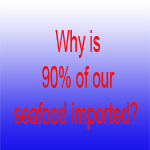| San Diego Union Tribune
December 11, 1998
SACRAMENTO -- California's war on smog is taking to the high seas --
and to the state's lakes and rivers -- with a new plan to clamp down on
air pollution from a half-million pleasure boats and one-person watercraft.
Air-quality enforcers yesterday unanimously approved rules to sharply
cut pollutants from new two-stroke and four-stroke marine engines, including
outboards, beginning in 2001.
Those engines are used in many motorboats; personal watercraft; small,
lightweight jet boats; and small fishing boats. Inboard engines are exempt
from the regulations.
The rules, far more stringent than federal anti-pollution standards,
are intended to reduce emissions that state scientists contend have a dramatic
impact on air quality.
The regulations would take effect first with engines built in 2001,
then be tightened in stagesthrough 2008. By then, the engines would be
90 percent less polluting than they are today, according to the Air Resources
Board.
Federal standards would reduce marine-engine emissions by 75 percent
by 2025, a board staff report said.
"Currently, a personal watercraft operated for seven hours produces
more smog-forming emissions than a 1998 passenger car driven for 100,000
miles. The impact of marine engines on air quality is especially serious
on summer weekend days, when smog levels are highest and use of marine
engines is heaviest," according to a staff analysis by the ARB.
Personal watercraft spew 100 tons or more of pollutants into California's
air on a summer day, according to the staff. The most polluting of the
craft, those powered by two-stroke engines, also pour unburned gasoline
into the water.
The ARB, the state's top air-pollution regulator and an agency whose
decisions are watched closely around the country, adopted the rules after
months of hearings and testimony.
Environmentalists, while pleased with the new regulations, said they
don't go far enough. Boat owners and sellers, engine manufacturers and
lobbyists for personal watercraft said the regulations could economically
cripple California's $11 billion boating industry.
"We think the rules could have been much tougher. They could have done
much more. I don't think the marine industry has any idea how easy it got
off," said Russell Long, a spokesman for the San Francisco-based Blue Water
Network, an environmental coalition that includes the Sierra
Club.
Representatives of the marine industry questioned the board's assessment
of the environmental impact of the engines' pollution and said the industry
had made good-faith efforts to provide clean engines.
Moreover, they said, the cost of modifying the engines to comply with
the regulations is higher than the ARB's estimates. The board said altering
an engine would add an average of 14 percent to the cost, which would be
passed on to consumers.
The engines range in price from a few hundred dollars to $20,000.
"I'm not opposed to cleaning things up, so long as the standards they
set are attainable," said Bill Jacobs, attorney for the San
Diego Personal Watercraft Association.
The state's action is certain to raise the cost of personal watercraft,
he said, adding that a small price hike of less than 4 percent
shouldn't be a problem.
But if the pollution restrictions trigger a dramatic rise in cost to
the manufacturers, "they may even leave California because
this isn't their biggest market."
Despite assertions to the contrary, Jacobs said he doesn't believe personal
watercraft by themselves contribute significantly to air pollution.
"The amount of pollution from personal watercraft is negligible because
there are so few of them out there," he said.
John Jay, a Milpitas boat retailer, said the new regulations would strangle
his business.
"It's a sticker-shock deal. It's just too costly. It's as if they are
going to intentionally regulate me out of business. And when
it happens in California, there's a ripple effect and it will happen in
the rest of the country," Jay said.
Staff writer Terry Rodgers contributed to this report.
 for
a link to an article reviewing potential OBM/boating impacts for
a link to an article reviewing potential OBM/boating impacts
 for
a link to the Executive Summary and Introduction to the Workshop Proceedings for
a link to the Executive Summary and Introduction to the Workshop Proceedings
 for
a link to a NJ FishNet focused on boating impacts for
a link to a NJ FishNet focused on boating impacts
|


